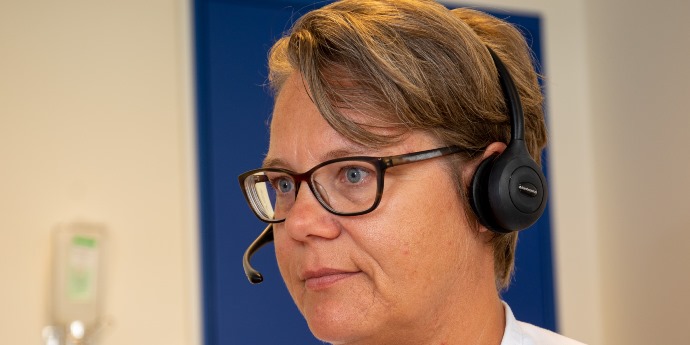
For common rheumatic diseases the delay of diagnosis and treatment is less than two weeks.
For patients with complicated rheumatic diseases referred by a specialist in Rheumatology according to our centre function there is no delay.
The Department of Rheumatology especially focuses on diagnosis and treatment within:
• Inflammatory joint diseases
• Connective tissue diseases and vasculitides
• Pregnancy and autoimmune diseases
• Inheritable connective tissue diseases
Inflammatory joint diseases
The use of biological drugs has led to the establishment of national treatment programmes in rheumatoid arthritis, Spondyloarthritis and psoriathic arthritis. The treatment strategies are in accordance with the international EULAR/ACR guidelines and have been translated into an improved outcome for patients with inflammatory joint diseases.
All patients with rheumatoid arthritis, spondylo arthritis and psoriathric arthritis are systematically registered in the national database DANBIO.
Connective tissue diseases and vasculitides
For more than 15 years, the Centre for Connective Tissue Diseases and Vasculitis at Aarhus University Hospital has been led by a rheumatologist. In cooperation with several other departments the centre handles the treatment of patients with connective tissue diseases and vasculitides at an international level. Special focus is on 1) systemic lupus erythematosus, 2) systemic sclerosis, 3) polymyositis/dermatomyositis, 4) vasculitis, 5) pregnancy in autoimmune diseases and 6) other more rheumatic diseases.
Pregnancy in autoimmune diseases
Often the disease flares up during pregnancy and many drugs are not permitted as they may negatively affect the development of the foetus. Both disease activity and treatment may have undesirable side effects for the foetus leading to late miscarriage, low birth weight, and increased perinatal mortality. An expert rheumatologist and an obstetrician in collaboration with other specialists manage this patient group.